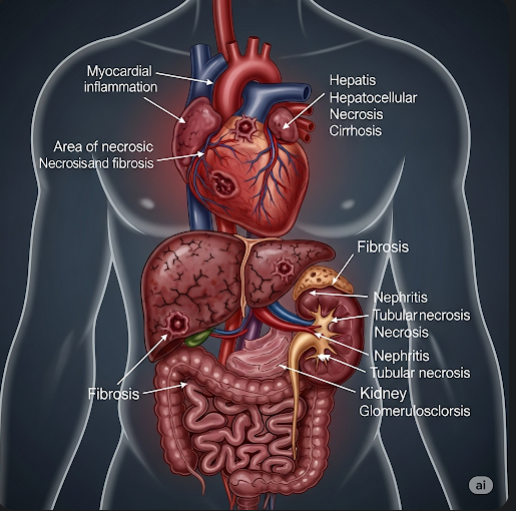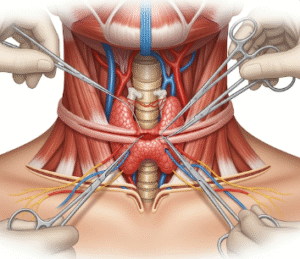Overview
Organ failure occurs when an organ loses its ability to perform its normal functions, either partially or completely. This can happen suddenly (acute organ failure) or develop gradually over time (chronic organ failure). Depending on the organ affected—such as the heart, kidneys, liver, lungs, or pancreas—the consequences can be life-threatening and require immediate medical attention. Organ failure may affect one organ or multiple organs simultaneously, known as multiple organ failure.
What is Organ Failure?
Organ failure refers to the condition where one or more vital organs in the body stop working properly. Each organ has a critical role in maintaining homeostasis, and failure disrupts the balance necessary for life. Common types include heart failure, kidney failure, liver failure, respiratory failure, and pancreatic failure. Causes may include infections, chronic diseases, trauma, or poisoning. Organ failure is often a sign of advanced disease or systemic health issues.
Symptoms
Symptoms vary depending on which organ is failing. General symptoms may include:
- Fatigue and weakness
- Shortness of breath
- Nausea and vomiting
- Confusion or altered mental state
- Swelling in the legs or abdomen
- Chest pain or irregular heartbeat
- Decreased urine output
- Jaundice (yellowing of the skin and eyes)
- Unconsciousness in severe cases
Causes
Organ failure can result from a wide range of medical conditions and factors, including:
- Infections and sepsis
- Chronic diseases such as diabetes, hypertension, or COPD
- Autoimmune disorders like lupus or vasculitis
- Drug toxicity or overdose
- Alcohol abuse or substance misuse
- Cancer affecting organ tissues
- Trauma or surgery-related complications
- Congenital conditions or genetic disorders
Risk Factors
- Aging and weakened immune system
- Pre-existing chronic illness (e.g., diabetes, heart disease)
- Heavy alcohol or drug use
- Smoking and poor diet
- Lack of access to preventive healthcare
- Long-term use of certain medications
- Exposure to toxins or harmful chemicals
- Family history of organ-related diseases
Complications
Organ failure can lead to severe and potentially fatal consequences, such as:
- Multiple organ dysfunction syndrome (MODS)
- Increased risk of infections
- Blood pressure instability
- Cognitive decline or coma
- Heart arrhythmias and cardiac arrest
- Need for long-term dialysis or ventilator support
- Death, if not managed appropriately
Prevention
- Manage chronic diseases with regular medical follow-up
- Get vaccinated to prevent infections that may harm organs
- Maintain a healthy lifestyle with balanced nutrition and exercise
- Avoid smoking, excessive alcohol, and substance use
- Monitor and control blood pressure and blood sugar
- Use medications only as prescribed
- Seek early medical help when symptoms arise
Treatment Option in Korea
South Korea is at the forefront of organ failure management, offering both emergency and long-term treatment. Korean hospitals are equipped with state-of-the-art technology and multidisciplinary care teams. Treatment approaches may include:
- Medical stabilization with medications and supportive care
- Dialysis for kidney failure (hemodialysis and peritoneal dialysis)
- Ventilator support for respiratory failure
- Advanced heart care for cardiac failure, including pacemakers and cardiac surgery
- Liver support systems and management of liver failure complications
- Organ transplantation, where necessary—especially for kidney, liver, and heart failure
- Rehabilitation and long-term follow-up to improve outcomes
Leading Korean hospitals such as Asan Medical Center, Samsung Medical Center, and Seoul National University Hospital are internationally recognized for organ failure management and transplantation. They offer comprehensive care with advanced diagnostics, ICU facilities, and international patient support services.













